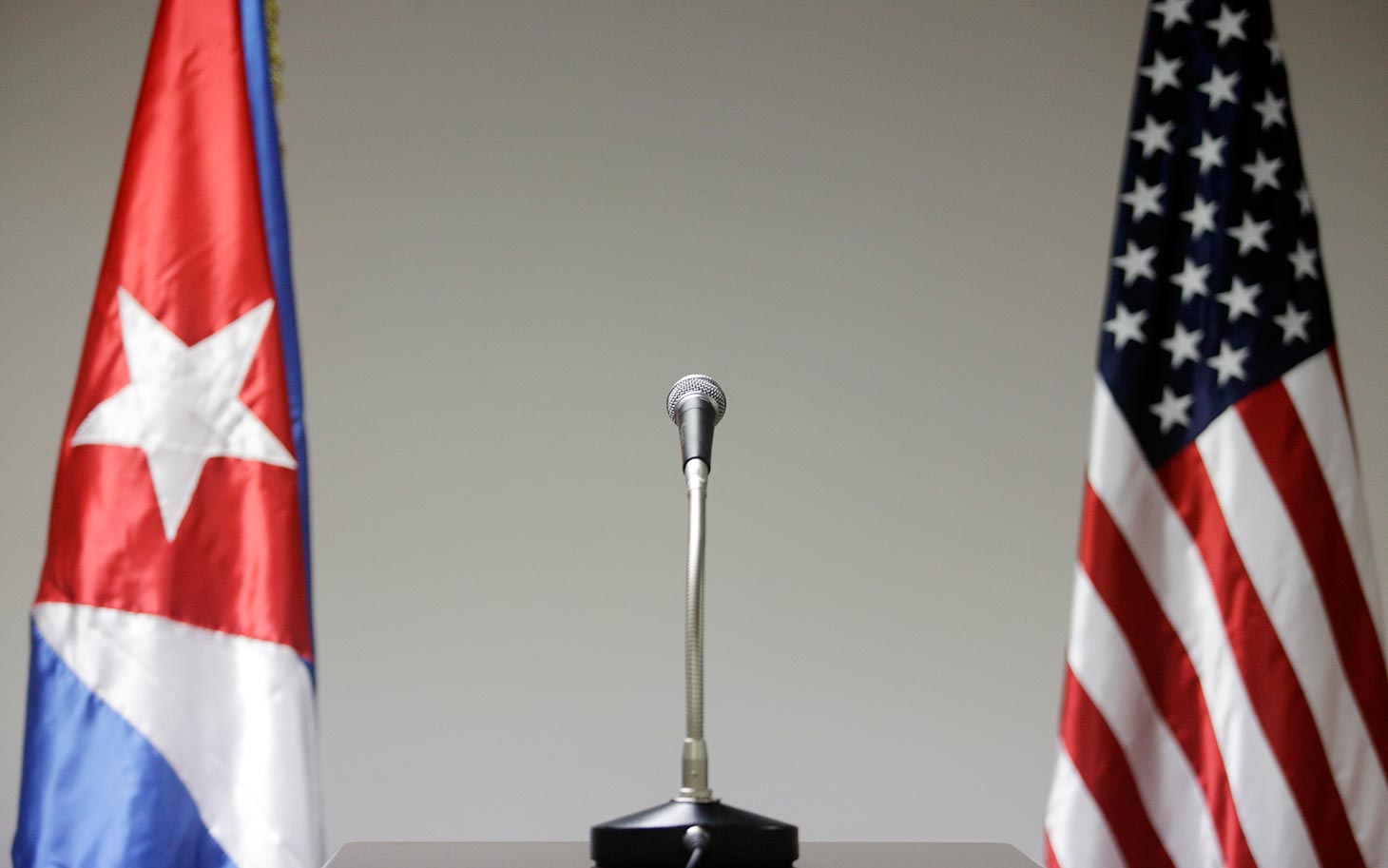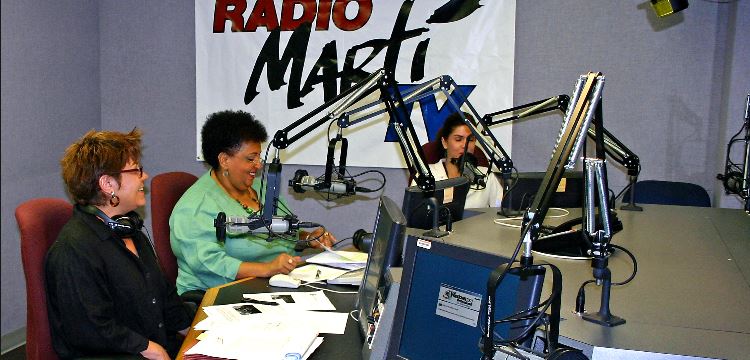
Official statement lists Cuba’s conditions for normalization
Text of Statement by the Revolutionary Government, published in the daily Granma and translated by Progreso Weekly.
—-
On July 1, 2015, the President of the Councils of State and Ministers of the Republic of Cuba, Raúl Castro Ruz, and the president of the United States of America, Barack Obama, exchanged letters through which they confirmed the decision to reestablish diplomatic relations between the two countries and open permanent diplomatic missions in their respective capitals, effective July 20, 2015.
On that very day, a ceremony officially opening the Embassy of Cuba will take place in in Washington, in the presence of a Cuban delegation led by Foreign Minister Bruno Rodríguez Parrilla and composed of noted representatives of Cuban society.
By formalizing this step, Cuba and the United States ratified their intention to develop respectful relations and cooperation between both peoples and governments, based on the principles and purposes enshrined in the Charter of the United Nations and international law, in particular the Vienna Conventions on Diplomatic and Consular Relations.
The Government of Cuba has decided to re-establish diplomatic relations with the United States in the full exercise of its sovereignty, unswervingly committed to the ideals of independence, social justice, and solidarity with the just causes of the world, and in reaffirmation of each one of the principles for which our people have shed their blood and have run all risks, led by the historic leader of the Revolution Fidel Castro Ruz.
The re-establishment of diplomatic relations and the opening of embassies concludes the first phase of what will be a long and complex process towards normalization of bilateral ties, as part of which a number of issues arising from past policies, still in force, affecting people and the Cuban nation, will have to be solved.
There can be no normal relations between Cuba and the United States while the rigorously applied economic, commercial and financial blockade continues, causing harm and shortages to the Cuban people. It is the main obstacle to the development of our economy, it constitutes a violation of international law and affects the interests of all countries, including those of the United States.
To achieve normalization, it will also be essential that the territory illegally occupied by the [U.S.] Naval Base in Guantánamo be returned, that the radio and television transmissions to Cuba that violate international norms and are harmful to our sovereignty policies be terminated, that programs aimed at promoting internal subversion and destabilization be eliminated, and that the Cuban people be compensated for the human and economic damages caused by the policies of the United States.
While recalling the unresolved issues between the two countries, the Cuban government acknowledges the decisions taken so far by President Obama to exclude Cuba from the list of state sponsors of international terrorism, to urge the U.S. Congress to lift the blockade, and to begin to take steps to modify the application of aspects of this policy in the exercise of his executive prerogatives.
As part of the process towards the normalization of relations, in turn, there is a need to build the foundations of some links that have not existed between our countries in all their history, in particular from the military intervention of the United States 117 years ago, during the war of independence that Cuba waged for nearly three decades against Spanish colonialism.
These relations must be founded on absolute respect for our independence and sovereignty; the inalienable right of every state to choose its political, economic, social and cultural systems, without interference in any form; and the sovereign equality and reciprocity that constitute the essential principles of international law.
The Government of Cuba reiterates its willingness to maintain a respectful dialogue with the Government of the United States and to develop relations of civilized coexistence based on respect for the differences between the two governments and cooperation on issues of mutual benefit.
Cuba will remain engrossed in the process of updating its economic and social model, so as to build a prosperous and sustainable socialism, advance in the development of the country, and consolidate the achievements of the Revolution.
Havana, July 1, 2015
*****
Cuban news agency expands on ‘obstacles’ to normalization
Progreso Weekly
The re-establishment of diplomatic relations between Cuba and the United States “is a step forward, but only the start of a complex process toward bilateral normalization,” says an article Wednesday (July 1) in Prensa Latina, Cuba’s largest news agency.
Summarizing what appears to be the position of the Cuban government, the article says, in part:
“Despite the steps taken in the right direction in recent months, what Havana considers as the main obstacle to normalcy remains standing: the economic, commercial and financial blockade that provoked damages of more than 1 trillion 112 thousand and 534 million dollars to the Cuban people.
“On the list of pending issues is Cuba’s demand to the United States for the return of the territory occupied illegally by the Naval Base at Guantánamo, on the eastern end of the island, established there against the will of the people and government of the island.
“In addition, the Caribbean nation demands a halt to the illegal broadcasts by Radio and TV Martí because they violate [Cuba’s] national sovereignty and run counter to important international conventions on the issue of communications.
“Among its priorities, Washington holds the ‘normal’ work of its diplomatic functionaries in Havana, something that, both parties agree, should be based on the postulates of the Vienna Convention and the United Nations Charter.
“On numerous occasions, Cuban authorities have denounced activities that they qualify as subversive on the part of functionaries of the SINA [U.S. Interests Section.]
“For the United States it is also important to discuss the issue of compensation for the properties that were nationalized at the start of the Revolution led by Fidel Castro, and Havana has ratified its willingness to discuss this and any other issue of bilateral interest.
“For its part, Cuba asks that the programs aimed at promoting subversion and internal destabilization be eliminated and that compensation be paid to the Cuban people for the human and economic damages caused by the policies of the United States.”


